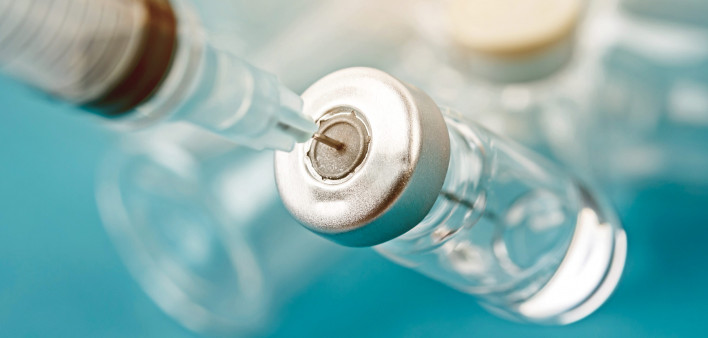New HIV Vaccine Booster Prompts Long-Lived Immune Response in Monkeys
The finding could eventually be used to make an HIV vaccine prompt a longer-lasting immune response in humans.
Researchers have developed a new HIV vaccine booster, or adjuvant, that helped give rise to an immune response in monkeys that lasted for up to 12 months in a recent study.
Publishing their findings in Science Immunology, researchers vaccinated 90 rhesus macaques with HIV antigens based on the viral envelope, or outer coating, combining this vaccine with the boosting agent 3M-052 in some of the animals.
The vaccine boosted with 3M-052 gave rise to an abundance of long-lived plasma cells, or mature B cells, that produced HIV-specific antibodies in the bone marrow and blood serum. When the booster was combined with a similar preexisting adjuvant, the immune responses lasted up to 12 months.
“We have known adjuvants are critical immunity-boosting supplements that help improve the effectiveness of vaccines,” the study’s first author, Sudhir Pai Kasturi, PhD, of Emory University, said in a press release. “Until now, however, it has been unclear which class of adjuvants can promote stable and long-lived immunity in nonhuman primate models. Our study provides that information.”
Co–senior author Rafi Ahmed, PhD, director of the Emory Vaccine Center, said, “The key to a successful vaccine is durability of immune responses. Antibodies provide the first line of defense against pathogens, and antibody levels are maintained by the generation of long-lived plasma cells that reside in bone marrow. Our study identifies an adjuvant that is effective in generating such long-lived plasma cells in bone marrow.”
The findings have led investigators to launch a Phase I human clinical trial of the booster to assess its potential when given with vaccines based on HIV envelope antigens.
To read a press release about the study, click here.
To read the study abstract, click here.







1 Comment
1 Comment